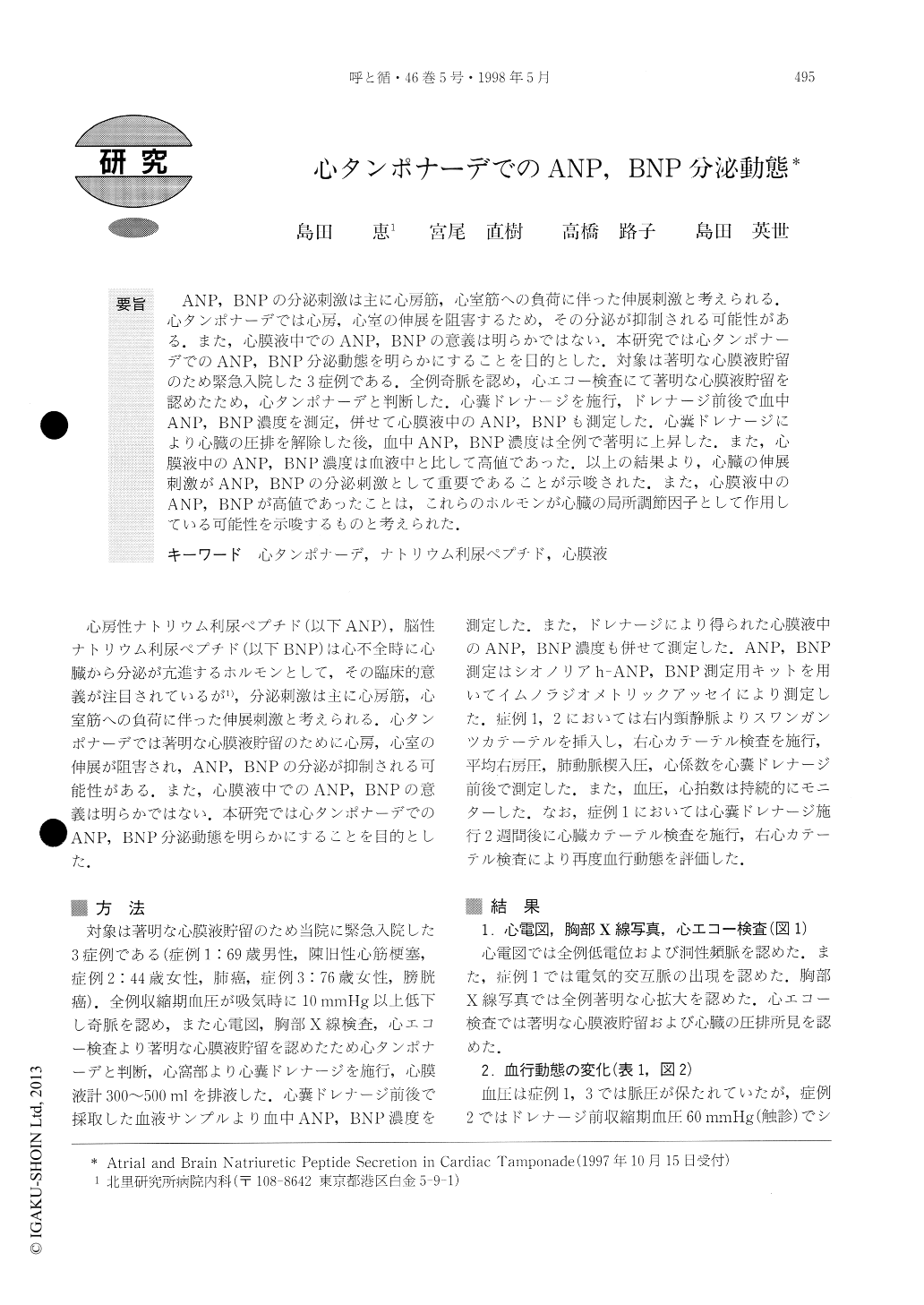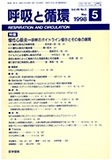Japanese
English
- 有料閲覧
- Abstract 文献概要
- 1ページ目 Look Inside
ANP, BNPの分泌刺激は主に心房筋,心室筋への負荷に伴った伸展刺激と考えられる.心タンポナーデでは心房,心室の伸展を阻害するため,その分泌が抑制される可能性がある.また,心膜液中でのANP, BNPの意義は明らかではない.本研究では心タンポナーデでのANP, BNP分泌動態を明らかにすることを目的とした.対象は著明な心膜液貯留のため緊急入院した3症例である.全例奇脈を認め,心エコー検査にて著明な心膜液貯留を認めたため,心タンポナーデと判断した.心嚢ドレナージを施行,ドレナージ前後で血中ANP, BNP濃度を測定,併せて心膜液中のANP, BNPも測定した.心嚢ドレナージにより心臓の圧排を解除した後,血中ANP, BNP濃度は全例で著明に上昇した.また,心膜液中のANP, BNP濃度は血液中と比して高値であった.以上の結果より,心臓の伸展刺激がANP, BNPの分泌刺激として重要であることが示唆された.また,心膜液中のANP, BNPが高値であったことは,これらのホルモンが心臓の局所調節因子として作用している可能性を示唆するものと考えられた.
We studied the response of atrial and brain natriuretic peptide secretion in 3 patients with cardiac tamponade. Plasma levels of atrial and brain natriuretic peptidesl (ANP, BNP) were measured before and after pericar-dial drainage. We also measured the concentrations of ANP and BNP in pericardial effusion. After drainage, plasma levels of ANP and BNP increased significantly. In addition, the concentrations of ANP and BNP in pericardial effusion also increased. These results suggest that release of natriuretic peptides were inhibited in cardiac tamponade despite elevation of atrial and ventricular pressure. High concentrations of ANP and BNP in pericardial effusion may support the suggestion that these hormones are paracrine factors in cardiac homeostasis.

Copyright © 1998, Igaku-Shoin Ltd. All rights reserved.


